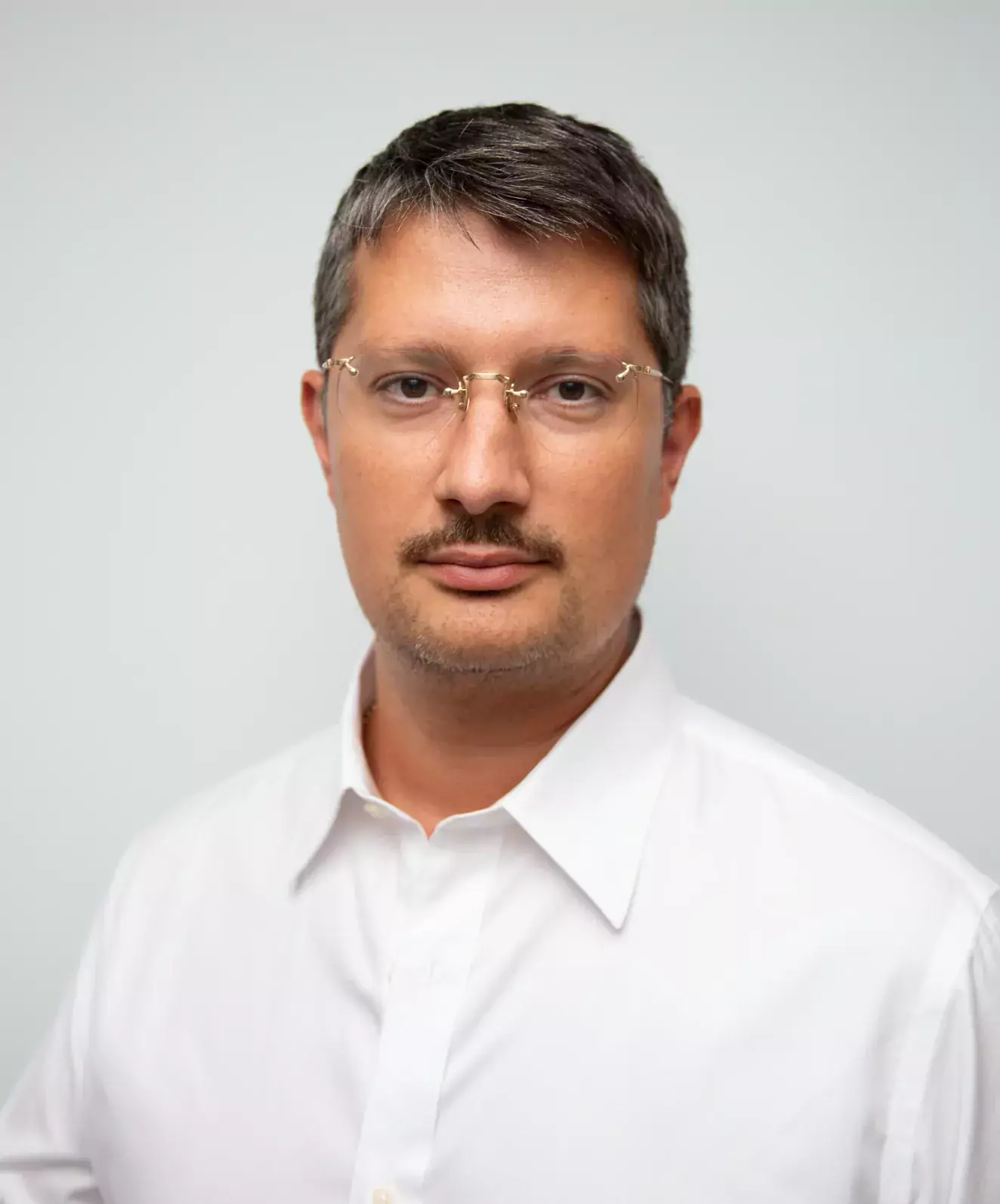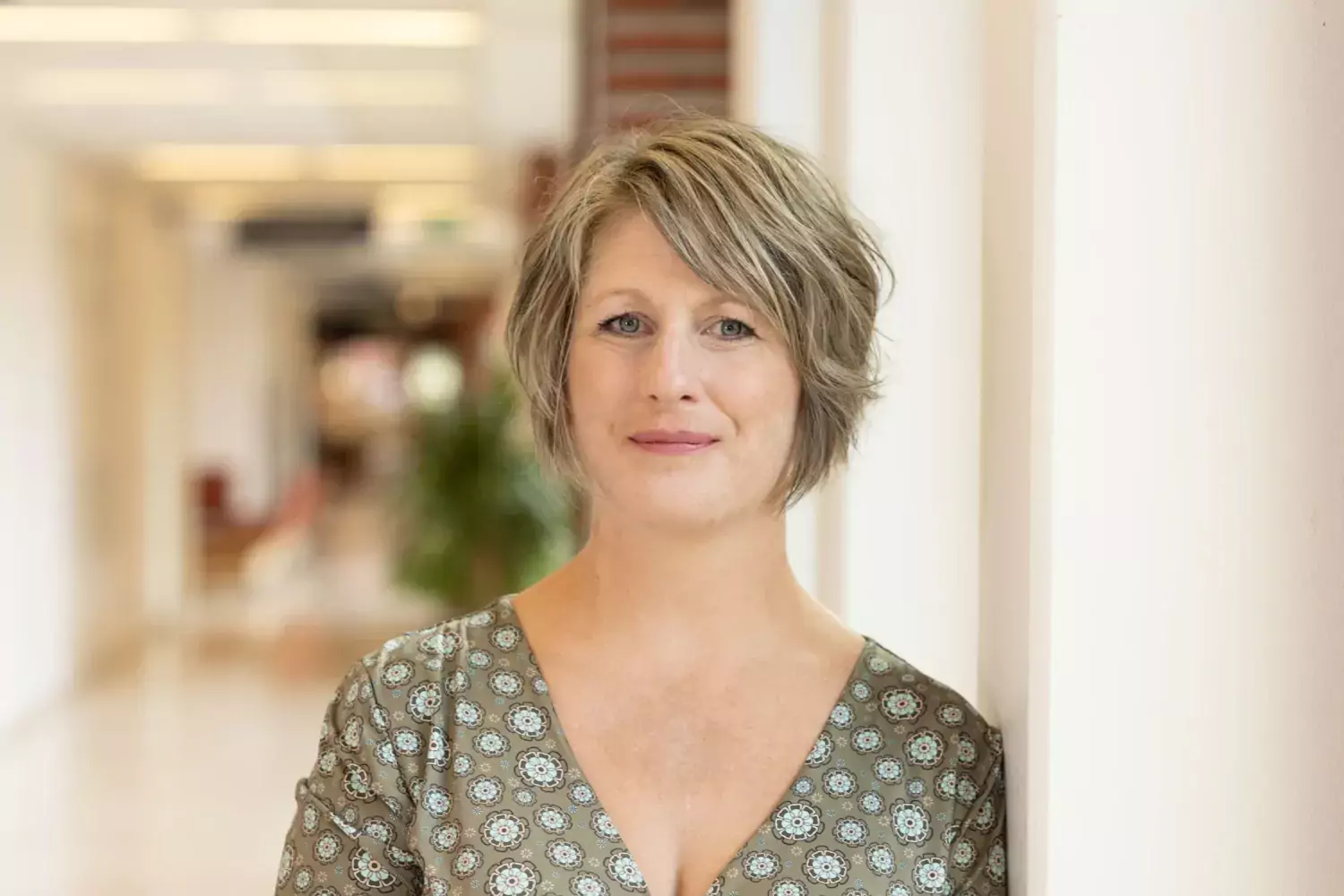Sentenced to care - punishment or opportunity?

In 2022, roughly 350 people were sentenced to forensic psychiatric care. There is a unique borderland between the judicial system and healthcare, in which a person who has completed their medical treatment can be prevented from being discharged. At the same time, many patients are saying that they have benefited from the care. And fewer people relapse into crime after they have received forensic psychiatric care than they do after being imprisoned.
Text: Annika Lund, for the magazine Medicinsk Vetenskap nr 3 2023 / Spotlight on forensic psychiatric care
In the middle of the night, emergency services receive an agitated call and the operator dispatches police and an ambulance to a party at someone's home. Emergency services staff walk into chaos. Two young women are seriously injured, sitting on a chair in the kitchen is a man who is talking to himself, and on the table is a bloody knife. When the police officers approach him the man does not resist, but instead says that "the rainbow snake ordered him to" and that the two women were "antennas from the enemy".
The scenario is fabricated - but how does society act in a situation like this? What happens when a crime is committed by a person who clearly has a distorted perception of reality?
In the example above, the man would be arrested and taken into custody. And then, at any early stage of the legal process, the court would ask a forensic psychiatrist to conduct a so called Section 7 investigation. It works as a screening, a sifting to try and find cases that warrants further investigation into the person's psychiatric health.
One of the persons who conduct these investigations is Katarina Howner, forensic psychiatrist at the National Board of Forensic Medicine.

"At these times we meet with the person for around one hour. We try to create a picture of how oriented the person is in their life, if he or she knows where they are and can understand the conversation correctly. We also have the option of ordering previous medical records from the healthcare services as well as social services", says Katarina Howner, who is also the research group coordinator at the Department of Clinical Neuroscience at Karolinska Institutet, where she conducts research on psychopathy and lack of empathy.
Roughly every other Section 7 investigation leads to a forensic psychiatric investigation, which is more extensive. These investigations are only carried out when the suspected crime has a penal range that includes imprisonment.
Changed perception of reality
Normally, people who are undergoing a forensic psychiatric investigation are held in custody. They get to stay in residence unit for a few weeks and meet with a team that includes several professions, such as doctors, psychologists and social investigators. It is an environment that is similar to that of care facilities, where you can do jigsaw puzzles, watch television or perhaps play table tennis - vastly different from the environment in remand facilities. If the people are not held in remand during the investigation, the investigation is carried out while they are free in society and they then get to visit the investigation unit.
However, the team that carried out the forensic psychiatric investigation is not the care staff in this situation. They belong to the judicial system and will report results to the questions asked by the court, where the most important aspect is to determine whether the person who is being investigated is suffering from a severe mental disorder, which is a legal term and not a medical one. According to a definition from the Social Welfare Board, it involves a condition of degree of severity for psychotic disorder, where for example confusion, hallucinations and delusions have an impact on the person's perception of reality.
In practice, it means that roughly half of the people that have been sentenced to forensic psychiatric care suffer are diagnosed with schizophrenia as a main diagnosis, but other psychotic disorder are also commonly determined to be the main diagnosis. The same applies to affective disorders, an umbrella concept that includes, among other things, bipolar disorder and very severe depressions with a high risk of suicide. Another common main diagnosis is neuropsychiatric syndrome, another umbrella concept that includes people with very pronounced autism.
"It involves people with extremely rigid thought patterns, that are so concrete that they basically lack the ability to think in abstract terms. This can lead to extreme compulsive behaviour and a detachment from reality, Katarina Howner explains.
Majority have one or more psychiatric diagnoses
During 2022, 537 forensic psychiatric investigation were conducted according to the National Board of Forensic Medicine's annual report. In 315 cases, the person was considered to have had a severe mental disturbance when the crime was committed.
Although some people recover quickly, as early as during the four weeks of investigation, which is the maximum time that an investigation is in progress. Almost 40 people achieved this in 2022. This quick recovery is normally due to the psychotic condition being caused by drugs. In these cases it is not possible to impose forensic psychiatric care, since the severe mental disturbance cannot have been self-inflicted according to legislation. There are several exceptions.
Roughly half of the people who undergo a forensic psychiatric investigation are later sentenced to care. In 2022 it was 353 people according to the Swedish National Council for Crime Prevention (BRÅ). Katarina Howner emphasizes that this does not mean that the people who are sentenced to imprisonment are "healthy".
"Basically everyone we investigate have one or more psychiatric diagnoses. But not everyone belongs to the small group that must be distinguished in the legal process, those who have in some way lost contact with reality. Other people can be sentenced to imprisonment and the Swedish Prison and Probation Service must then ensure that their need for care is met", she says.
She describes some common misconceptions of forensic psychiatry, such as many people faking symptoms in order to "beat the system" and be sentenced to care instead of imprisonment".
"When the person that we are investigating stays in an investigation unit for several weeks we get a picture of to what extent the person manages meals, hygiene and social interaction. We also find out what their life was like before the crime, how it had functioned in terms of a place to live, work and relationships. We create an overall picture. In my experience, it's more common for some people who are very sick to try and hide it. Some people prefer to cope on their own without any contact with psychiatric care", says Katarina Howner.
 Photo: Linnea Bengtsson
Photo: Linnea BengtssonThe care helped Sten after the arson
Sten Lundin set his apartment on fire and was convicted of arson. It turned out that he had bipolar disorder and the care he got helped him on feet again. "Life can sometimes turn around. I want everyone to know that", says Sten Lundin.
Tough punishment
Another common misconception is that forensic psychiatric are is a milder form of punishment than imprisonment.
"It involves involuntary psychiatric care for an indefinite time period. That's a tough punishment the way I see it. But for many people it's a great help. A person who suffers from a psychotic disorder is given a chance to straighten out their medication and receive help in finding a place to live, an occupation and financial aid", she explains.
There are several enforcement actions in forensic psychiatry, such as involuntary administration of medication and physically restraining a person with the use of a belt. According to the quality registry RättspsyK, approximately every ten patients received some form of enforcement action in 2022. The most common one was isolation, which entails the patient being isolated from other patients, for example in a separate room.
In general, care times are long in forensic psychiatry (read more in the article on the right). And the treatment always starts with institutional care. It is given in 26 different locations throughout the country, where the larger units are the clinics in Växjö, Stockholm, Sundsvall and Säter, and the Regional Hospital Karsudden.
In total, around 2,000 people received treatment in forensic psychiatric institutional care facilities in 2021, according to the Social Welfare Board's statistical database. And, as mentioned, the main diagnosis for the majority of people is a psychotic disorder. However, says Hannibal Ölund Alonso, Chief Physician in forensic psychiatry in Region Stockholm, many people have several secondary diagnoses in addition to this.

"What separates many of our patients from most other people in psychiatry is that they have a very complex clinical picture with multiple problems. Many of our patients have several problems in addition to the basic illness, such as substance abuse, low intellectual ability or antisocial personality disorder with a lack of empathy. In most cases, it is a combination of several problems that causes a person to end up with us. We administer treatment or help and support for anyone with these conditions", he says.
According to the quality registry Rättspsyk, 86 percent of the forensic psychiatry patients received some type of anti-psychotic drug in 2022. Most often, the less common anti-psychotic drugs are used - the ones that are listed at the bottom of the Wise List (the list of drugs that are recommended by Region Stockholm's drug committee for the treatment of common diseases).
"We enter a stage where the patients have already tried different kinds of treatment which for several reasons have not worked. We therefore administer a more potent treatment in psychiatry, that requires more frequent follow-ups due to the risk of adverse reactions", Hannibal Ölund Alonso explains.
There are no drugs available for autism. But there is other help available for people who are experiencing serious problems due to such a disability.
"We can offer social skills training, where you learn basic things such as how to communicate with other people and how to act in different situations. We can offer this as a group treatment where several people with the same problems participate. That way we can act out scenarios where we show what to do in different situations", says Hannibal Ölund Alonso.
Want to stop using drugs
According to the quality registry, around one out of four patients receive the drug to try an straighten out some form of substance abuse at some point during the care. More people, roughly one in three patients, receive counselling and information about addictive disorders as some point. Even more people, or roughly 85 percent, are asked to take regular drug tests, something that is often a requirement for discharge from outpatient care.
"However, many people who come to us say as early as the first week that they want to stop using drugs. But so many other things are happening around them. We usually wait until the patients have progressed a bit more in their treatment and their psychotic disorder has stabilised. We then administer different types of treatments against substance abuse, individually designed. Motivating talks is a common treatment", says Hannibal Ölund Alonso.
Other common secondary diagnoses are different types of personality disorders. It may involve problems to handle emotions that tend to become very strong and shift rapidly. It may also involve a substantial lack of respect for social rules in combination with a lack of empathy. These are people who are looking for quick fixes, easily get stuck in substance abuse and who find it difficult to comprehend consequences of their actions. Psychopathy is a sub-group of personality disorders.
Behavioural problems as a result of this is treatable, even though it can sometimes be a slow process", says Hannibal Ölund Alonso, who in addition to his position as Chief Physician is also a doctoral student in Katarina Howner's research group at the Department of Clinical Neuroscience, where he conducts research on psychopathic personality traits.
Exposed group
The patients in forensic psychiatric inpatient care often have several challenges.
- 48 percent suffer from varying degrees of obesity, while an additional 31 percent are overweight.
- Over 90 percent have previously been in contact with psychiatric care.
- 61 percent need help to manage their financial situation.

"Frankly, it's about getting these people to understand how their own actions affect them. If they, for example, want to complete their treatment they need to accept the treatment and cooperate with the staff. It's about getting them to create long-term goals for things that they long for in their own lives.
Regarding the intellectual level of function there is a broad span within the group, where some people have a good ability and some are perhaps university graduates. It's puts them at a good position where it might be possible for them to enter the workforce after they have completed their treatment.
However, that is rare.
On the contrary, many people have an intellectual level that has created obstacles for them in life - especially in school.
"We have a high percentage of patients with a low level of education and substantial reading and writing difficulties. Many of them have not completed primary school. Those people may have a hard time understanding and relating to information. We need to keep that in mind when we are implementing treatment actions that are based on conversations and reasoning", Hannibal Ölund Alonso explains.
A court decides when the care should stop
Forensic psychiatric care can be imposed with or without special discharge review, so called SUP. With SUP is the most common. In a case like this, an administrative court will make a decision on ground privileges and leave, and when the care should proceed to outpatient care or stop.
According to the law, the case should be completed when a number of criteria have been met. One criterion involves the severe mental disturbance that formed the basis of the judgment no longer entailing a risk of repeat offences. Another criterion is about the patient's other personal conditions.
The first criterion applies to the patient's basic illness in practice, which is in many cases a psychotic disorder. It must be well medicated and stable.
The other criterion is more difficult to pinpoint - and often more difficult to help the patient with. However, the person needs to be able to take care of themselves and be able to manage chronic disorders, if there are any.
It may involve managing daily routines, such as sleep, food and rest - factors that are important in keeping a psychotic disorder in check. It may also involve taking control of a previous substance abuse. Or having a place to live, an occupation and an organised financial situation, a functioning day to day life to fall into. Otherwise the risk of a relapse in the disorder increases - as well as a relapse into crime.
Need support to function in daily life
There are a lot of things that need to be in place here. In many cases, the patient needs different types of support in terms of housing and occupation, something that sets requirements on the municipalities. Sometimes the healthcare sector finds that a patient is ready for a life without care, but the municipality where the patient is a resident is slow in in responding. And the lack of a place to live and an occupation may affect the court's decision.
At the same time, the patients must show that they can manage their day to day life. A key word here is ability to function. Nurse Malin Källman, who has been working in forensic psychiatry for twelve years, is preparing a doctoral thesis on the ability to function in this patient group.
 Photo: Erika,Weiland
Photo: Erika,WeilandJenny was sentenced to forensic psychiatric care
She was deprived of liberty for over ten years. "I feel a great deal of sadness that it took so long before I received proper care", says Jenny.
"Getting the level of function to increase is the most time consuming for us, the adjustments to medications are often completed first. And that's the way it needs to be. It's hard to work on the level of function in someone who is openly psychotic", says Malin Källman, who is conducting her studies at the Department of Clinical Neuroscience at Karolinska Institutet.
She has used the assessment instrument WHODAS, which measures the level of function by having the patient answer 36 questions in six different areas. For example, it involves how well you can comprehend what is happening around you, how you manage to handle your hygiene and household, but also how well you succeed in the most important tasks of your studies or job.

Regular assessment ensures the quality of care
WHODAS can basically be used by everyone, regardless of diagnosis, and describes how well you have been functioning for the last 30 days. The instrument has previously been used in several areas, such as stroke care and pregnancy. The assessment is done on repeated occasions as a way of capturing changes.
"The idea is that a regular assessment should be able to ensure the quality of the care that we are providing. We need to know, for each patient, where the greatest problems lie. And then we need to follow up, for each and every patient, to make sure that the treatment efforts are resulting in measurable changes", says Malin Källman.
She describes patiens who oversleep when it comes time to take their morning medication, skips breakfast, skips a walk before lunch, eats three portions for lunch and fails to perform their afternoon activity. She also describes staff who wakes the patient who needs to take their medication, motivates patients into eating breakfast, explains what a walk means to their health and shows them how large a suitable portion should be.
"It's a constant balancing act. We should support the patients so that they reach an independence. But we need to find a level where they are not stressed out by requirements that are too high, while they should also not live in misery", says Malin Källman.
In one of her studies, the patients have assessed themselves in parallel to the staff assessing their abilities, in both cases using the WHODAS questionnaire. This study has not yet been published, but it is already obvious that the assessments differ - with the patients thinking that their ability to function is better than what the staff thinks. In an upcoming study, the researchers will examine how the patients think when they are answering the questionnaire, everything in an attempt to understand what might be causing the discrepancies. That study has not yet been completed, although you could imagine several explanations". says Malin Källman.
"Some patients might think back to how they once used to function, before the got sick. Others might answer based on a reality that they are accustomed to. A person who has grown up in a home with alcoholic parents or who has lived on the street might have another frame of reference in terms of when a room can be considered cleaned, for example.
Two out of three report improvements
During 2022, forensic psychiatric care ended for 155 patients, according to the quality registry RättspsyK, which includes 85 percent of the patient group. In the latest annual report, estimates of life quality was reported for roughly one thousand patients who had completed their care at some point in 2009 and ahead. For each patient, previous estimates were compared to later ones. This provides a basis for describing how many patients feel that their life quality has improved, deteriorated or remained unchanged after they have received forensic psychiatry care. Two out of three report improvements. In other words, an increase in life quality - after years of deprivation of liberty and involuntary psychiatric care.
However, this figure only included patients who have completed their care. And in order to do that, a patient must have control of their medications, daily routines, living arrangements and financial situation. Helping the patient gain control of these basic elements of day to day life is key factor in forensic psychiatric care.
Forensic psychiatrist Hannibal Ölund Alonso explains what can happen in an administrative court when a person completes their forensic psychiatric care.
"I was there as late as last week with a former patient. She told me and the court that she was grateful for the care that she had received and she described what it had meant for her. She has gone from being terribly tortured as a result of her illness and missing people around her to now having a life that she is satisfied with. We often hear this. We get to be there when these severely ill people finally feel that their life has content and meaning.
Swedish forensic psychiatry is rare
In Sweden, everyone is convicted of crimes that they have committed, regardless of mental health. In other countries there is a so called plea of insanity, where the person who is not sane avoids punishment and is transferred to healthcare directly, without first being convicted in a court of law.
The courts
Swedish courts can adjudicate several sanctions, where the punishments can be either a fine or imprisonment. Forensic psychiatric care is a sanction that is imposed when a crime is too serious for the court to impose a fine, but prison is out of the question, mainly because the crime has been committed while the person was under the influence of a severe mental disorder, which is a legal term.
Three out of four people who are sentenced to forensic psychiatric care have a special discharge review. That means that a court determines when the care should proceed to outpatient care or be terminated.
The National Board of Forensic Medicine
Contributes with expert knowledge and answers questions about the court. In 2022, 1,138 Section 7 investigations were done and 537 forensic psychiatric investigations.
The healthcare system
During 2021, just under 2, 500 people were treated in forensic psychiatric inpatient and outpatient care, according to the Social Welfare Board. 85 percent of the patients were male. The treatment always starts as institutional care but the patient is gradually transferred over to outpatient care with special conditions, such as a requirement to maintain contact with healthcare or regular drug tests.
The municipalities
To be discharged, the patients must have an organised life with a place to live and an occupation. In many cases, municipal efforts are required, such as different levels of support surrounding housing and daily activities. The support that is offered to meet the needs of the patients vary between the 290 municipalities in Sweden.
Schizophrenia common diagnosis
Psychotic disorders such as schizophrenia is the most common diagnosis among people who have been sentenced to forensic psychiatric care. However, these people only constitute a fraction of the 30-40, 000 people who are currently living with schizophrenia in Sweden.
Relapse into crime
Of the patients who were discharged from forensic psychiatric care in 2016, 21 percent were convicted of a new crime within three years. The corresponding figure for those who were released after a prison sentence was 63 percent, according to BRÅ statistics from 2023.
Sources: The Swedish National Council for Crime Prevention, the National Board of Forensic Medicine's annual report 2022, RättspsyK's annual report 2022, the Social Welfare Board's statistics on involuntary psychiatric care, the Social Welfare Board's national guidelines on schizophrenia and schizophrenia-related conditions (2018).
